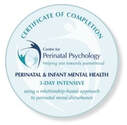 Among the many nuances of the therapeutic journey, insight, often known as the Ah-Ha experience, is certainly one of the most prized pearls. “The term “insight” describes an experience that is related to a state of understanding, which emerges into one’s conscious awareness with sudden abruptness.” Therapist's should relish the moments when clients have insight into their problems. These ah-ha moments can move therapy forward in leaps and bounds, but like anything good they cannot be rushed or manufactured. As experiences therapists we often know (or at least think we know) the underlying issues and causes related to a problem a client presents with. We want to solve problems, its one of the reasons we do what we do, so we often fall prey to analysing and interpreting so as to edge the client toward a moment where they connect the information or pieces of their story in such a way that they fall over the truth. This is not necessarily wrong, but client generated insight far more valuable. If I have lead a client toward a particular insight I will always check out, “does that feel right to you?” The days of analysts telling a person what their problem is are long gone. Now we know if it doesn’t FEEL right to a person then it is not the right answer for them. What we didn’t know years ago we can now actually observe happening in the brain. Moments of insight light up different areas of the brain and create new neurological connections. This can only occur if something has meaning to the person, it is an internal state that cannot be created. An ah-ha is a moment in time where previously unconnected yet related neuronal pathways connect with another related yet previously unconnected neural network to form a spontaneous powerful synergistic moment of new knowing. Like a mathematical problem finally making sense, this great leap in understanding is created in this moment and results in permanent neurological change.
Have you ever seen a true gestalt image? When you first look at the image all you can see is one thing - two faces staring at each other OR a vase. Eventually you force a change in your perception and make yourself see the vase. Once you see it you cannot un-see it. You can never go back to only seeing the 2 faces. Its the same with insight. Once you have insight into an issue its hard to keep doing the same thing the same way. Just as your perceptual framework was altered once you discovered the hidden image, your conceptual framework has been altered at the neurological level once you have had an insight. Good and timely insights that are client generated (or if therapist generated feel “right” to the client) basically rewire old circuitry in the brain. Things are re-filed under the new system. The mind has been changed and it can never go back to being quite the same way again. Reference Psychological & Cognitive Sciences May 2013 Vol.58 No.13: New advances in the neural correlates of insight: A decade in review of the insightful brain. SHEN WangBing1, LUO Jing2,3*, LIU Chang1* & YUAN Yuan1 Posts regarding integrative medicine, human behaviour, psychotherapy, gestalt therapy, bio-chemical disorders; pyrrole, methylation, copper and zinc imbalances, child behaviour, family relationships, parenting.
1 Comment
|
AuthorClarissa Mosley Categories
All
Archives
November 2022
|

 RSS Feed
RSS Feed



